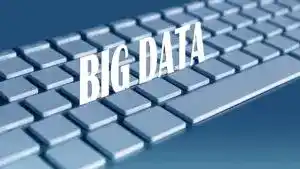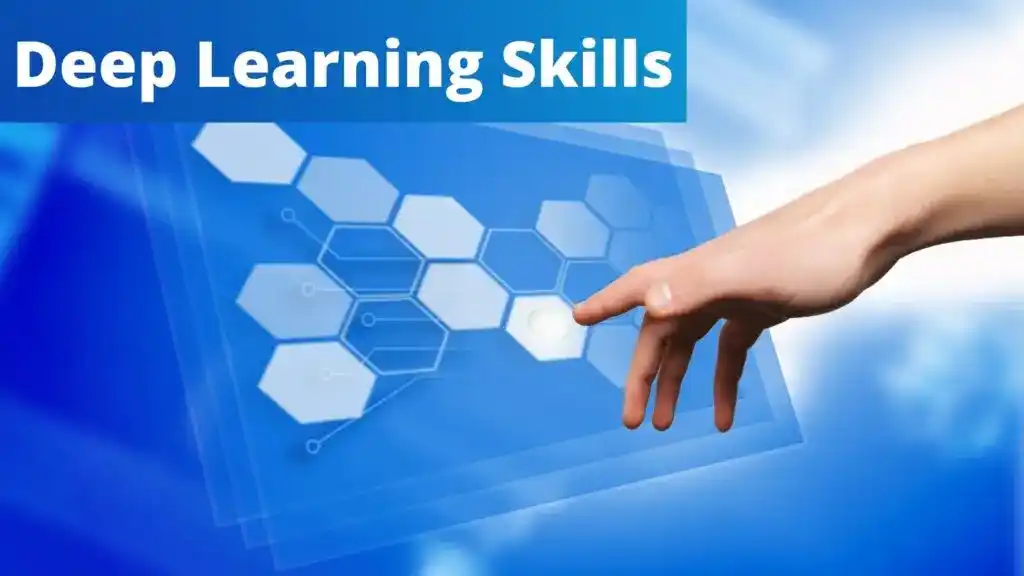Do you wanna know about the skills required for Deep Learning? If yes, then read this full article. Here I will discuss the top 6 skills required for Deep Learning to become a Deep Learning Expert.
So let’s get started-
Top 6 skills required for Deep Learning.
Deep learning is the subpart of machine learning. And it is much more powerful than machine learning. Deep learning is getting more interesting nowadays. So to learn deep learning, you should have the following 6 skills-
- Maths Skills.
- Programming Skills.
- Data Engineering Skills.
- Machine Learning Knowledge.
- Knowledge of Deep Learning Algorithms.
- Knowledge of Deep Learning Frameworks.
1. Maths Skills-
The first step or skill in deep learning is mathematical skills. It helps you to understand how deep learning and machine learning algorithms work. The three most important terms you should learn in maths are-
Now let’s see how probability knowledge will help you in machine learning and in deep learning. But before that, I will make one thing clear that don’t think you can directly jump into deep learning without learning machine learning. That’s why I am discussing all the skills that are required for deep learning as well as machine learning.
Let’s see How probability is used in machine learning-
a) Probability & Statistics-
In probability, there is Bayes Theorem. This is used in the Naive Bayes Algorithm to categorize our data. The next one is Probability Distribution. This will help you to determine how frequently an event can take place. You must also learn how Sampling and hypothesis testing works.
b) Linear Algebra-
In Linear Algebra, there are two main concepts that are used in deep learning and machine learning- Matrices and Vectors. They both used broadly in deep learning. Matrices are used in Image Recognition. The image you use for image recognition is in the form of matrices.
The recommender system you see in Amazon and in Netflix actually works on the vector. This vector is the customer behavior vector.
c) Calculus-
In calculus, you have Differential calculus and Integral calculus. These help to determine the probability of events. For example, in finding the posterior probability in the Naive Bayes Algorithm.
2. Programming Skills-
You need to develop good programming skills if you wanna become a deep learning expert. There are lots of programming languages are available, you can choose from. The most used programming languages in Deep learning are-
But, Python and R are the most suitable programming language for deep learning and machine learning. I would suggest you learn Python or R.
Let’s see the basic difference between R and Python-
- Python is an Object-Oriented Programming Language.
- Python relies on Packages.
- It is easy to learn and smooth.
- R is and Functional.
- R has built-in packages.
- Difficult at the beginning.
So, if you are a beginner, I will recommend you, learn Python. You can learn the basics of Python from here- PYTHON TUTORIAL.
3. Data Engineering Skills-

You should have some Data Engineering Skills. As deep learning works on a huge amount of data. Therefore, you should have knowledge of dealing with this data. Data Engineering skills include-
a) Data Pre-processing- Data pre-processing requires following steps-
- Cleaning.
- Parsing.
- Correcting.
- Consolidating.
b) ETL (Extraction, Transformation, Load)-
You should know how to extract the data from the internet or a local server. You need to know how to transform the data. Transformation means converting your data into a proper format that is acceptable. The next one is loading, so you need to know how to load the data into your program.
c) Knowledge of Database-
Deep Learning is all about data, so you should have knowledge of the database. You need to have knowledge of MySql, Oracle Database, and NoSql.
4. Machine Learning Knowledge-

The next most important skill is to learn machine learning algorithms. Because in order to learn deep learning, you should have basic knowledge of machine learning algorithms. At least learn some popular machine learning algorithms like-
- Naive Bayes.
- Support Vector Machine.
- K nearest Neighbour.
- Linear Regression.
- Logistic Regression.
- Decision Tree.
- Random Forest.
- K means Clustering.
- Hierarchical Clustering.
- Apriori.
Some of these algorithms fall into Classification Category, some in Clustering Category.
In classification, there are two categories– classification, and regression. Classification algorithms classify the data into different categories, whereas, a regression predicts the value of data.
In clustering, data is partitioned into a different cluster based on certain similar attributes.
5. Knowledge of Deep Learning Algorithms-
After Machine Learning Algorithm, you need to learn a deep learning algorithm. The most common and popular Deep Learning algorithms are-
- Artificial Neural Network.
- Convolutional Neural Network.
- Recurrent Neural Network.
- Generative Adversarial Network.
- Deep Belief Network.
- Long Short Term Memory Network.
Once, you learned these algorithms, you should learn how to-
- Select a Problem.
- Choose an appropriate algorithm for your problem.
- Create a model with one or more algorithms.
- Optimize your model for the best accuracy.
6. Knowledge of Deep Learning Frameworks-
You should have knowledge of Deep Learning Frameworks.
The most popular framework of Deep Learning-
- TensorFlow.
- Theano.
- scikit learn.
- PyTorch.
- Keras.
- DL4J.
- Caffe.
- Microsoft Cognitive Toolkit.
Now, let’s discuss some framework in detail-
a) Tensorflow-
Tensorflow is the most widely used framework in Machine Learning and Deep Learning. It is an open-source software library. It is used for numerical computation using the data flow graph.
b) Theano-
Theano helps you define, optimize, and evaluate mathematical operations. LASAGNE, BLOCKS, and KERAS are popular libraries.
c) scikit learn-
It is built on top of existing libraries like NUMPY, SCIPY, and MATPLOTLIB. It has started as a GOOGLE SUMMER OF CODE and now has 23,000 Github commits.
So that’s all, only these skills are required to become a Deep Learning Expert. Congratulations, it’s your first step towards deep learning. So start learning today. For more details on Deep Learning, Read this article- What is Deep Learning and Why it is Popular?
Enjoy Learning!
All the Best!
Thank YOU!
Though of the Day…
‘ It’s what you learn after you know it all that counts.’
– John Wooden
Read Deep Learning Basics here
Written By Aqsa Zafar
Founder of MLTUT, Machine Learning Ph.D. scholar at Dayananda Sagar University. Research on social media depression detection. Create tutorials on ML and data science for diverse applications. Passionate about sharing knowledge through website and social media.

